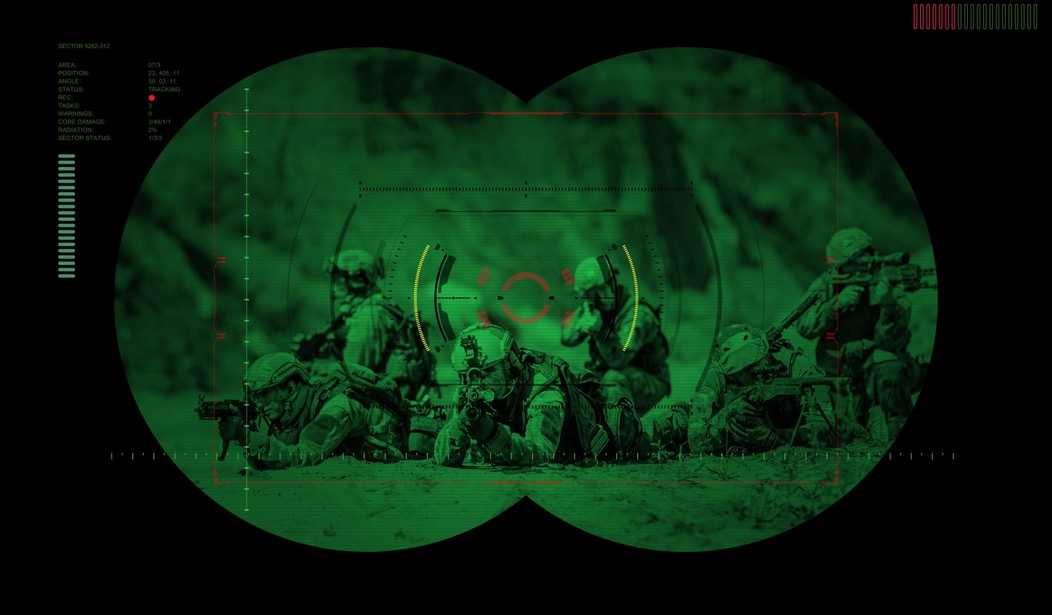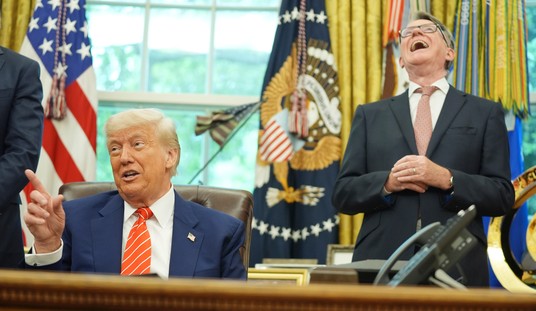Even as America’s rivals are probing its defenses all across the globe, the Pentagon seems decidedly leery over taking on any new missions in the Middle East. “The Obama administration and the Iraqi government are eager to retake Iraq’s second-largest city from the Islamic State, which would allow President Barack Obama to claim a major victory over the terror group before he leaves office. But the top U.S. military brass says not so fast.”
The debate over the timetable for taking Mosul … highlights the competing pressures of an administration seeking to craft its legacy and military professionals worried about rushing into a bloody urban war.
It may also suggest an implicit consensus that it would be best to avoid risky undertakings for the remainder of the Obama administration and prepare instead for the serious threats that the administration’s mistakes have unleashed. Russian prime minister Dmitry Medvedev warned of a new “world war” at the recently concluded Munich security conference. Foreign Policy writes, it’s “crunch time for Washington and Beijing in the South China Sea” as satellite photos showed China fortifying its new island bastions with missiles.
“Is there anything Washington can do to slow China’s land grab?” it rhetorically asks? The answer is: probably not with the current leadership of the free world. Nobody really wants to follow president Obama into a crisis. “Turkey, Saudi Arabia and some European allies” have asked America to support a ground operation as “as a Russian-backed government advance nears NATO’s southeastern border, Turkey’s foreign minister said, but Washington has so far ruled out a major offensive.” Plus they are reluctant to undertake anything themselves. NATO members France and Germany have declined to do anything against ISIS out of dread for a resurgent Russia.
There is about the current international situation the atmosphere of fiasco. The Russia/Iran buildup continues, fueled as the Free Beacon notes by cash the Obama administration gave Tehran itself. Russia is now increasingly in command of the Syrian Army fighting beside an Iranian “foreign legion”, eliciting nothing more than a squeak from the president. There are warnings it is now time to start preparing for the collapse of Saudi Arabia without the expectation of being able to prevent it.
No solutions appear possible for the present. Plans appear to focus on the world after Obama. Resigned to the fact that migrant inflow cannot be stopped, European security forces are preparing to fight ISIS sleeper cells in the cities of the old continent. Saudi Arabia is hosting major maneuvers involving 20 Islamic countries on its northern border in anticipation of a regional Armageddon. A major South Korean politician has proposed acquiring nuclear weapons to defend itself from North Korea.
Everyone is making shift for themselves because that is all that is possible. But the most significant actions have been undertaken by the Pentagon itself. It has proposed the largest budget in years for the express purpose of rebuilding the deterrent force against Russia. The New York Times reported plans to “fortify” Eastern Europe. Real Clear Defense reports a crash program called the Third Offset Strategy to boost up the combat power of the US military in the short term. The current Defense Budget is a tacit mea admission of a need to make up for ground squandered in the last 7 years.
For a two-term president issuing his last federal budget that was dismissed before it even hit the Hill, the defense budget rollout has received unusually heavy coverage. This is driven mostly by Secretary of Defense Ash Carter’s unveiling of the “Third Offset” strategy and its official launch and inclusion in the 2017 request. Put simply, the new strategy is an attempt to offset shrinking U.S. military force structure and declining technological superiority in an era of great power competition—a challenge that military leaders have not grappled with in at least a generation. …
the third offset is not just a quest for next-generation technologies, but also a re-evaluation of existing programs with an eye toward how they can be dramatically improved at relatively low cost. … investments fall into six targeted areas: anti-access and area-denial, guided munitions, undersea warfare, cyber and electronic warfare, human-machine teaming, and wargaming and development of new operating concepts. Much of it is weighted toward the Air Force and Navy.
But all these things must wait until after the current administration. After years of talking about a “world without nuclear weapons”, legacies, grand bargains, rule based international systems, open borders and falling seas, the final act of the Obama administration has been to allow a budget aimed at belatedly giving America a fighting chance for survival, to at least let someone do what he could not do himself.
It seems clear there is widespread consensus there will be a major period of instability or conflict after Obama leaves office, perhaps even before he departs. Conflicts in Eastern Europe, Turkey, the Middle East, North Africa, China, etc. are not only possible, they have actually started and each is escalating.
What is still unclear is how bad it will get. That depends on two things: the extent to which Western defenses can be rebuilt and the judiciousness with which foreign and security policy leadership is exercised. Political events in 2016 are crucial not only in America, but all over the world because they will determine, more or less, who is in charge when the balloon goes up. If the West can prepare in time and uses its assets properly, the worst of the crisis can still be avoided and a general peace might still be preserved. If nothing intelligent replaces the last seven years of foolishness then the embers now smoldering may burst into open flame, merge and threaten everybody with the major conflict Dmitry Medvedev warned against.
There will still be some calls in the next few months for president Obama to “do something” but there will be fewer than you would expect. The word is out, even among allies. He’s a busted flush. For the moment, the consensus appears to sit tight, get ready, take no chances and wait out Obama’s term.
Europe has finally gotten the picture. As for America, there is perhaps in the military some atavistic memory of its days in Vietnam, when small recon teams on the Ho Chi Minh trail, with no available air support and hunted by NVA trackers, would “remain overnight” (RON) in a dense thicket and set out their Claymores to survive until daybreak, in hopes their luck might change.
In a much bigger context that appears to be what is happening now. Remain overnight. People have decided to wait out the dark and hope for the best.
Follow Wretchard on Twitter
Recently purchased by readers:
Biocentrism: How Life and Consciousness are the Keys to Understanding the True Nature of the Universe, Authors Robert Lanza and Bob Berman propose a revolutionary new theory of the universe and existence called biocentrism. It turns the planet and physics upside down with the view that life creates the universe instead of the other way around.
A Fire Upon the Deep (Zones of Thought), Thousands of years hence, many races inhabit a universe where a mind’s potential is determined by its location in space – from superintelligent entities in the Transcend, to the limited minds of the Unthinking Depths, where only simple creatures and technology can function. Nobody knows what strange force partitioned space into these ‘zones of thought’, but when the warring Straumli realm use an ancient Transcendent artefact as a weapon, they unwittingly unleash an awesome power that destroys thousands of worlds and enslaves all natural and artificial intelligence. Fleeing the threat, a family of scientists, including two children, are taken captive by the Tines – an alien race with a harsh medieval culture – and used as pawns in a ruthless power struggle. A rescue party, not entirely composed of humans, must free the children – and retrieve a secret that may save the rest of interstellar civilization.
A Deepness in the Sky (Zones of Thought), The prequel to A Fire Upon The Deep, this is the story of Pham Nuwen, a small cog in the interstellar trading fleet of the Queng Ho. The Queng Ho and the Emergents are orbiting the dormant planet Arachna, which is about to wake up to technology, but the Emergents’ plans are sinister.
A Hobbit, a Wardrobe, and a Great War: How J.R.R. Tolkien and C.S. Lewis Rediscovered Faith, Friendship, and Heroism in the Cataclysm of 1914-18 , The untold story of how the First World War shaped the lives, faith, and writings of J. R. R. Tolkien and C. S. Lewis.
Recommended:
Amazon Echo, Echo connects to Alexa, a cloud-based voice service, to provide information, answer questions, play music, read audiobooks and the news, check sports scores or the weather, and more — instantly. All you have to do is ask. It is designed around your voice, it’s hands-free and always on. With seven microphones and beam forming technology, Echo can hear you from across the room — even while music is playing. Over 100 new features and skills have been added since launch, including Domino’s, Spotify and Uber.
Did you know that you can purchase some of these books and pamphlets by Richard Fernandez and share them with your friends? They will receive a link in their email and it will automatically give them access to a Kindle reader on their smartphone, computer or even as a web-readable document.
The War of the Words, Understanding the crisis of the early 21st century in terms of information corruption in the financial, security and political spheres
Rebranding Christianity, or why the truth shall make you free
The Three Conjectures, reflections on terrorism and the nuclear age
Storming the Castle, why government should get small
No Way In at Amazon Kindle. Fiction. A flight into peril, flashbacks to underground action.
Storm Over the South China Sea, how China is restarting history in the Pacific
Tip Jar or Subscribe or Unsubscribe to the Belmont Club










Join the conversation as a VIP Member